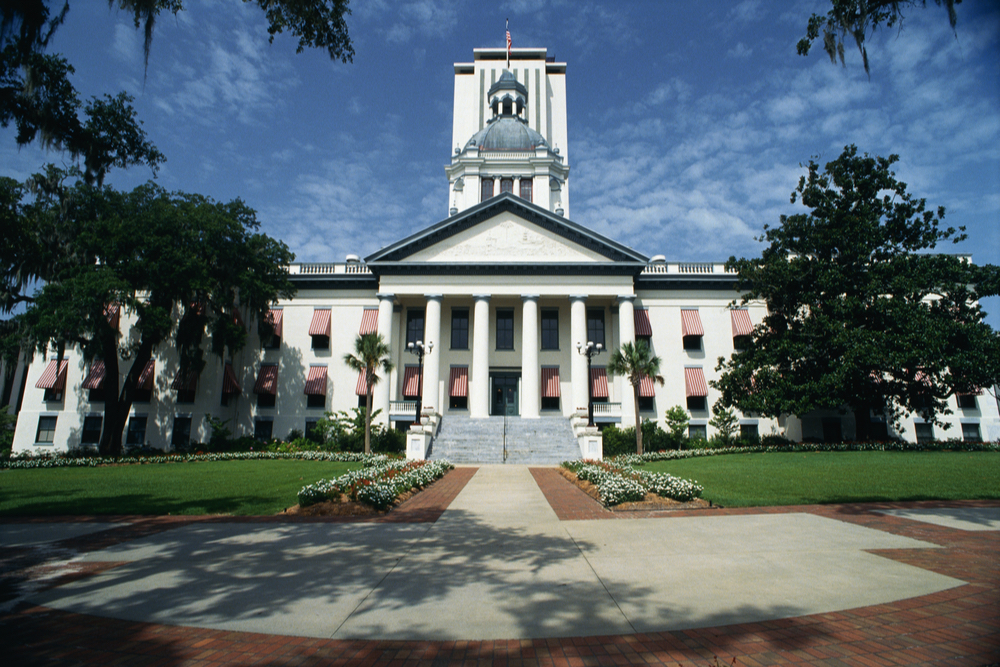What happens in Tallahassee matters, I’ve recapped some of the highlights with the help of the News Service of Florida.
Voucher Expansion Moving
The House Choice & Innovation Subcommittee approved HB 1 in a 13-4 vote. The bill expands the eligibility for school vouchers to families of any student who is a “resident of this state and is eligible to enroll in kindergarten through grade 12 in a public school in this state.” Florida’s voucher programs currently have income caps for recipients. Opponents warn the proposal will do little to improve academic performance and will defund public education. They assert the vouchers will pick up the tuition of students that are already attending private schools.
Law Enforcement
During a press conference at the Miami Police Benevolent Association on Thursday, Jan. 26, Gov. Ron DeSantis outlined a series of legislative proposals that included a call to allow murderers to be sentenced to death without unanimous jury recommendations. He also said he would seek lawmakers to require at least life sentences for convicted child rapists but added he wanted to explore the death penalty for child rapists. He also wants to expand a list of sex offenses that would make inmates ineligible for gain time, which can lead to early release.
To deal with the fentanyl epidemic, the governor wants to make it a first-degree felony to possess, sell, or manufacture fentanyl and other controlled substances that resemble candy and add a mandatory life sentence and $1 million penalty for trafficking such substances that target children. He said he would allocate $20 million for law enforcement agencies to increase efforts to interdict and apprehend the illicit sale and trafficking of fentanyl.
He also wants to block bail reforms by limiting who is eligible for release prior to first appearance, leaving the decision in the hands of judges. He will petition the Florida Supreme Court to establish a uniform bond schedule that all state courts must follow.
Contractors
On Thursday, Jan. 26, House Civil Justice Subcommittee voted 15-3 to approve HB 85 that would reduce the time homeowners can sue contractors for latent construction defects from 10 years to seven. Sponsor Rep. John Snyder (R-Stuart) said the bill would help address one of the “puzzle pieces” that contribute to a lack of affordable housing in the state. Supporters said the bill could help reduce costly litigation and insurance costs for contractors. But opponents said it could leave residents picking up the tab for problems that they did not discover until years after homes were built.
Workforce Housing
Senate President Kathleen Passidomo (R-Naples) filed Thursday, Jan. 26 SB 102, dubbed the “Live Local Act,” that provides incentives for private investment in affordable housing, offers flexible housing regulations that encourage mixed-use development in struggling commercial areas and prevents local rent controls.
The 94-page proposal directs $150 million a year in documentary-stamp tax revenues to the State Housing Trust Fund, with 70 percent of the money focused on converting existing structures into “attainable” housing and projects near military installations. The remaining 30 percent would go to housing for seniors, young adults aging out of foster care and projects in rural areas.
Another $252 million would be moved into the State Housing Initiatives Partnership, or SHIP, program, while $259 million would go into the State Apartment Incentive Loan, or SAIL, program.
The proposal also would add $100 million to the Hometown Heroes program, which was created last year to help people such as teachers, healthcare workers and police officers buy homes. Another $100 million would be set aside to offset inflation at new construction projects.
The state budget for the current year includes $362.7 million for affordable housing, with $209 million going to SHIP.
In addition to providing money, the bill would take steps to ease local regulations related to such things as zoning, density and height as it seeks to help clear the way for multi-family developments in commercial areas.
An incentive labeled “missing middle” would offer tax exemptions on newly constructed developments of 70 or more units that set aside units for workforce tenants who meet income requirements.
Developers also could receive property-tax discounts and exemptions when land is owned by non-profit organizations and leased for at least 99 years to provide affordable housing.
Among other things, the proposal would direct state officials to determine if state land could be used for affordable housing and to allow money from the Job Growth Grant Fund economic development program to go toward infrastructure projects that support affordable housing. The grant fund is currently limited to regional infrastructure projects and workforce training.
City & County Officials Disclosures
The House Ethics, Elections & Open Government Subcommittee voted 16-2 on Wednesday, Jan. 25, to approve HB 37, filed by Rep. Spencer Roach (R-North Fort Myer), that requires elected municipal leaders, along with appointed city and county managers, to provide more detailed accounts of their personal finances, using Form 6.
More Bonus Money for Cops
Gov. Ron DeSantis’ administration is seeking $30 million for police recruiting.The proposal is part of the Florida Department of Economic Opportunity’s funding requests for the 2023-2024 fiscal year, which will start in July. Acting DEO Secretary Meredith Ivey told members of the Senate Transportation, Tourism and Economic Development Appropriations Committee on Wednesday, Jan. 25 the 2022 effort campaign recruited 1,245 new officers that were awarded after-tax bonuses of $5,000.
